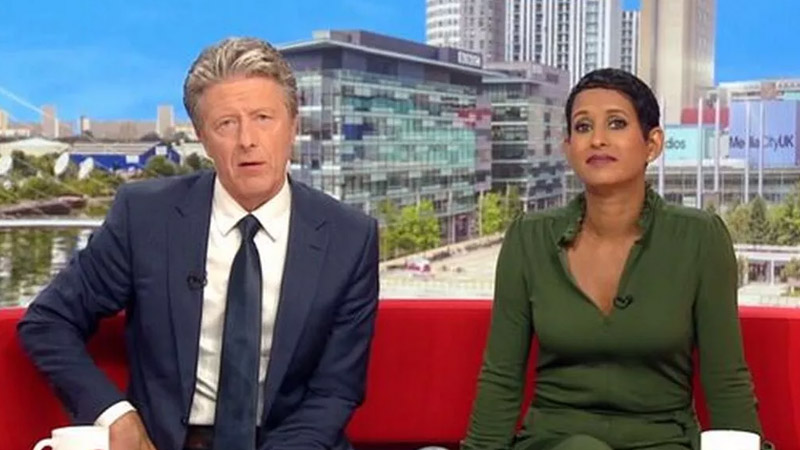
BBC Breakfast Slammed with Complaints as Furious Fans Demand: ‘Stop Giving Him Airtime’
BBC Breakfast viewers were left divided after the show aired discussions around tweets made by Elon Musk, the world’s richest man and CEO of Tesla, SpaceX, and social media platform X. The segment spotlighted Musk’s criticisms of the UK government on issues such as grooming gangs, illegal immigration, and political leadership, sparking a heated online debate.
Musk’s outspoken tweets, including allegations of mishandling by UK authorities and questions about Labour Party leader Keir Starmer’s political affiliations, became the focal point of both support and backlash. The tech mogul, who is based in Texas, has often waded into global politics, but his recent focus on British issues left viewers questioning his motivations.
One viewer took to X to criticize the BBC’s decision to highlight Musk’s comments: “BBC Promotes Musk: The trouble is… that when BBC News are reporting the latest unhinged tweet issued by ELON MUSK they deliver it with the same weight & substance as they do a UK elected politician #bbcbreakfast #BBCNewswatch.”
Another commenter echoed this sentiment, referencing journalist Samira Ahmed’s criticism of Musk’s involvement: “It’s not entirely clear why a South African-born tech billionaire based in Texas has been paying so much attention to UK politics. It’s crystal clear. Don’t insult us and stop promoting him.”
The controversy deepened as others accused the BBC of hypocrisy, pointing out that while viewers had raised concerns about the attention given to Musk’s tweets, the network spent significant time broadcasting them verbatim. One post read: “#Newswatch spent the last four minutes ‘repeating’ all the tweets ‘in full’ made by Musk on the BBC! That people were complaining about!!! #BBCBreakfast.”
Despite the backlash, Musk’s defenders argued that his criticisms were justified. Highlighting issues such as the handling of grooming gang cases and accusations against Starmer’s Labour Party, some felt Musk was shedding light on uncomfortable truths. One of his most controversial tweets questioned: “Who provides funding to Starmer and the Labour Party? Apparently, for example, I was reading that some hedge fund gave them £5M from a dodgy island in the Caribbean.”
In another incendiary post, Musk alleged ties between British authorities and terrorist sympathizers, amplifying a tweet from a UAE resident that criticized the Muslim Brotherhood’s presence in Britain. The post read: “Islamist terrorists, we ban them, you welcome them… How many more warnings will it take before you stop prioritizing political correctness over your people’s safety?”
Musk’s commentary didn’t stop there. He reposted claims about being “probed” by UK counter-terrorism authorities over his remarks on grooming gangs, responding with a biting critique: “The fox is guarding the henhouse.” This sparked further debate, with one supporter tweeting: “Imagine having an extremist unit monitor Elon Musk’s tweets, but not have an inquiry into grooming gangs!”
While Musk continues to tweet prolifically about British politics, including his critiques of Nigel Farage and the Reform Party, many viewers questioned whether his involvement was appropriate or simply a distraction. Meanwhile, others believe his influence and wealth grant him a platform to spotlight critical issues that traditional media might overlook.
The BBC’s coverage of Musk’s tweets has left audiences split, raising broader questions about the role of influential figures in international politics and the responsibility of media outlets in platforming such debates. Whether Musk’s criticisms are constructive or self-serving, one thing is clear: his words have ignited a firestorm of opinions across both sides of the Atlantic.
Has BBC News been irresponsible in amplifying Elon Musk's controversial posts about British politics? Join us tomorrow at 07.45 on BBC1 as part of @BBCBreakfast or at 15.45 on the News Channel. Or catch up on the iplayer pic.twitter.com/koi7Kb5amp
— NewsWatch (@newswatchbbc) January 10, 2025
